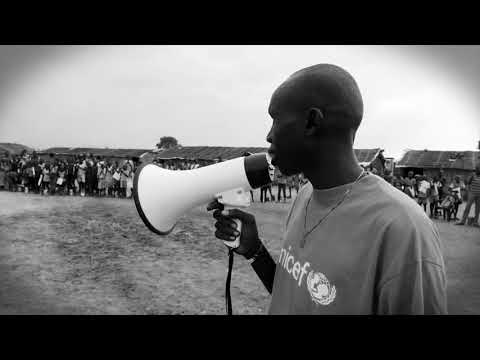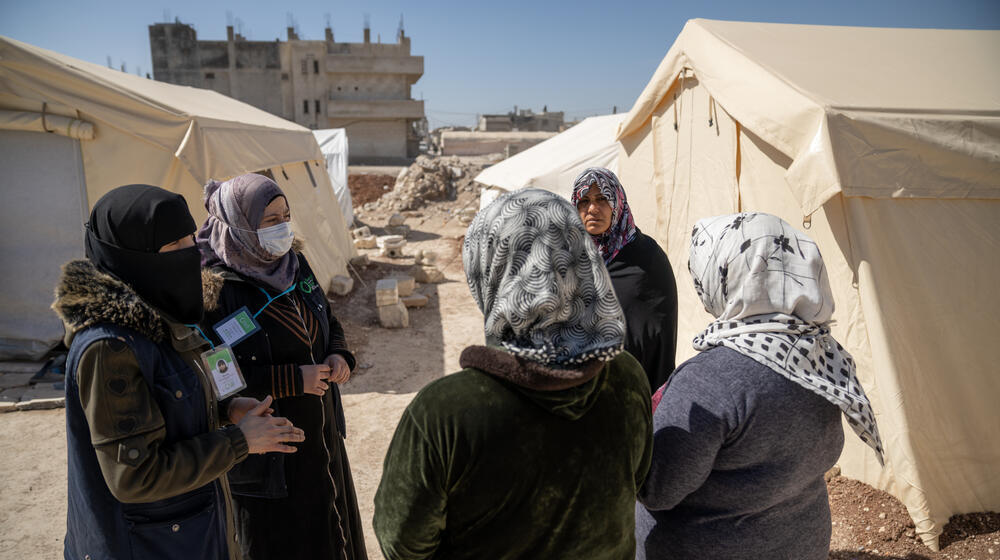SYRIA – “For most people in Syria, life today carries very few prospects for a better future,” Rima, a young woman from Aleppo, told UNFPA. “People are giving up.”
She is one of the 7.7 million women and girls in Syria in need of humanitarian assistance, having lived through 12 years of unrelenting violence, displacement, economic fiascos, epidemics including Cholera, and repeated assaults on their human rights.
The shattering earthquakes that struck last month, mere weeks before this bleak anniversary, were yet another deadly emergency to add to one of the world’s most complex humanitarian and protection crises.
Even before the earthquakes, more than 15 million people needed urgent assistance in Syria and 90 per cent of the population lived in poverty – the highest number since the crisis began in 2011. Syria also has the largest number of internally displaced people in the world at 6.8 million, with the same number having fled for neighbouring countries. Almost half of them are women and girls, grappling with the rippling consequences of homelessness, discrimination, financial destitution and escalating risks of exploitation and abuse.
“The situation for Syrians throughout the region is worse than it has been in years,” explained UNFPA Arab States Regional Director, Laila Baker. “Ongoing and new hostilities and rampant violations of human rights have converged to put lives at risk. As in all humanitarian crises, women and girls are the worst off.”
In Idlib in northwest Syria, two mobile medical teams have been deployed by UNFPA’s partner, the Syria Family Planning Association, to reach those in remote rural areas. The teams provide reproductive health consultations, pregnancy check-ups, psychological first aid, psychosocial support, gender-based violence interventions, and dignity and hygiene kits. © UNFPA Syria/Massoud Hasan
Health and protection services buckling under the strain

In Idlib in northwest Syria, two mobile medical teams have been deployed by UNFPA’s partner, the Syria Family Planning Association, to reach those in remote rural areas. The teams provide reproductive health consultations, pregnancy check-ups, psychological first aid, psychosocial support, gender-based violence interventions, and dignity and hygiene kits. © UNFPA Syria/Massoud Hasan
The earthquakes only exacerbated an intractable situation, with the lives and survival of almost 9 million people thrown into even greater turmoil.
Baby Nour was born in traumatic circumstances as her mother, Reham, and her relatives fled their home and took shelter alongside dozens of other families in a mosque in Aleppo when the earthquakes struck.
Although she received postnatal care from a UNFPA-supported mobile team that visits the shelter regularly, Reham said, “The living conditions are not healthy for me or my baby. The temperature is so low at night and the air is not clean because of the overcrowding. There isn’t enough food either.”
More than a decade of bombardments, scarce funding and pervasive insecurity have brought the country’s health system to its knees: Over half of facilities have closed or are only partially functioning and health workers have left in droves. "There are stock-outs of medications for treating very basic things like the flu, much less something as complicated as having a Caesarean-section," Ms. Baker added.
Since the earthquakes, an estimated 133,000 pregnant women, as well as breastfeeding mothers and menstruating girls, are struggling to access essential care, support and supplies. Of the 40,000 women due to deliver over the next three months, some 6,600 will have pregnancy and childbirth-related complications and need emergency, potentially life-saving health care that is now in dangerously short supply.
A catalogue of disasters
Gender-based violence in Syria also predated the earthquakes, with women and girls reporting increasing sexual and domestic violence, including by intimate partners, physical and psychological abuse, mounting digital violence and rising rates of forced and child marriage. These violations are only likely to spike with the latest disaster, as many women and their families are forced to live in makeshift, unsafe and overcrowded shelters, exposing them to yet more exploitation and abuse.
Over the past 12 years, UNFPA and its partners have supported access to health services and ensured protection from gender-based violence through safe spaces for women and girls. In 2022 alone, UNFPA delivered sexual and reproductive health services to more than 2 million people across the region, while more than 815,000 were reached with programmes designed to prevent and respond to gender-based violence, including nearly 290,000 adolescent girls.
Now in earthquake-impacted areas in the northwest, UNFPA and partners are distributing essential medicines and supplies to health and protection facilities and mobile teams are travelling to hard-to-reach to reach vulnerable women and girls. But much more must be done to protect millions from spiralling from crisis into catastrophe.

Medical staff attend to newborn babies, including those born prematurely at Idlib's maternity hospital, which is fully-funded by UNFPA. The hospital has delivered over 400 babies in the month following the earthquakes that hit Syria and Türkiye on 6 February 2023. © UNFPA/Karam Al-Masri
More help needed after a decade of suffering
The earthquakes exposed the fault lines and deep inequalities that are driving the crisis in Syria. Many more are now living on the streets or in refuges, unable to rebuild their homes or livelihoods. Health centres and support structures are damaged or obliterated. To safeguard the sexual and reproductive rights, health, and dignity of Syrians throughout the region will demand a united and uncompromising dedication by the international community.
In addition to the $24.8 million needed to reestablish services following the earthquakes, UNFPA is appealing for $141.2 million as part of its 2023 regional Syria crisis response. These funds are urgently needed to meet the daunting rise in reproductive health and protection needs and allow UNFPA to continue championing the rights of women and girls in Syria and those displaced across the rest of the region.


